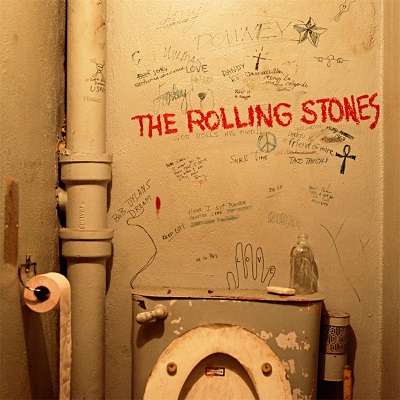So many musical puzzles fell together in 1968. The Beatles and Jimi Hendrix lead the way with career-defining albums released in November. Somehow, though, the Rolling Stones got in the last laugh. Earlier in the year, they teamed with producer Jimmy Miller for the first time and recorded the gritty, weather-strapped “Jumpin’ Jack Flash.” It went to the top of the charts. So, in December, they brazenly invited John Lennon, the Who, Eric Clapton and other friends to participate in The Rolling Stones Rock and Roll Circus, a television show that combined rock and roll performance with circus acts. The program sat under wraps and away from prying eyes and ears for the next 28 years. However, all was not lost in the final month of 1968 when the Rolling Stones released a magnificent album called Beggars Banquet.
Often cited as the beginning of the Stones’ peak years, Beggars Banquet is the first of the biggest and baddest four albums the band has ever made (the others being 1969’s Let It Bleed, 1971’s Sticky Fingers and 1972’s Exile On Main Street). In 1968, the Beatles found inspiration in India, and wrote songs of love and redemption; the Rolling Stones went back to their roots, danced with the devil, and questioned political authority. By this time, Mick Jagger and Keith Richards were clearly at the forefront. Jagger was running in sophisticated circles, and Richards learned about country music from Gram Parsons and experimented in his home studio. Meanwhile, one-time Rolling Stones leader Brian Jones began a hazy descent into a hole he’d never climb out of.
Out of the chaos, both internal and in the air, came brilliance. A samba-based tome to Lucifer called “Sympathy For The Devil” has Jagger slithering through a visceral, dark tunnel, spewing vitriol over a rumbling rhythm to intensify the scene. The politically charged “Street Fighting Man” has Richards pounding through layers of static-fused acoustic guitars, sourced from a cassette player, gathering moss and support from Charlie Watts on a toy drum kit from the 1930s. Add Nicky Hopkins’ angular piano lines, Jones’ sitar, and Jagger’s tendentious lyrics, written in response to protests in London and Paris, sidled alongside a general abhorrence of the Vietnam War, and it’s impossible to avoid the sway of drama sucking on your soul.
But wait there’s more. Jones, despite his own inner demons, plays his acoustic like an angel on “No Expectations.” Digging in his heels for country, Richards drives “Dear Doctor” around the bend with conviction and heart. “Stray Cats Blues” stands as one of the dirtiest and dustiest blues tracks the Stones have ever lassoed their lungs around. And it all ends on a high, hopeful point during “Salt Of The Earth,” awash in acoustics, Hopkins’ plaintive piano, a gospel choir and Jagger’s glowing vocal.
For the last album by the original quintet, there’s an odd elixir of celebration and caution buried in the grooves. Months later, in the summer of 1969, Brian Jones would be gone and the Stones would roll into the upswing of their most creative period. Then they staged a free concert in California, and the fallout presented another hurdle to overcome. Looking back, it’s easy to see that Beggars Banquet and everything that came with it served as a sort of blueprint for how the band, through extreme highs and lows, would function for the next 50 years.
~ Shawn Perry




















